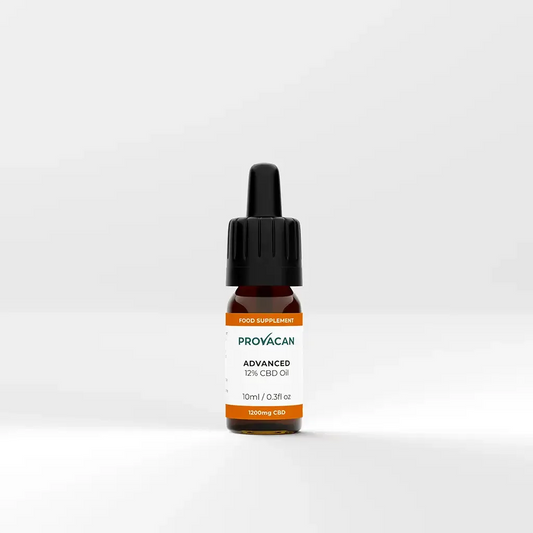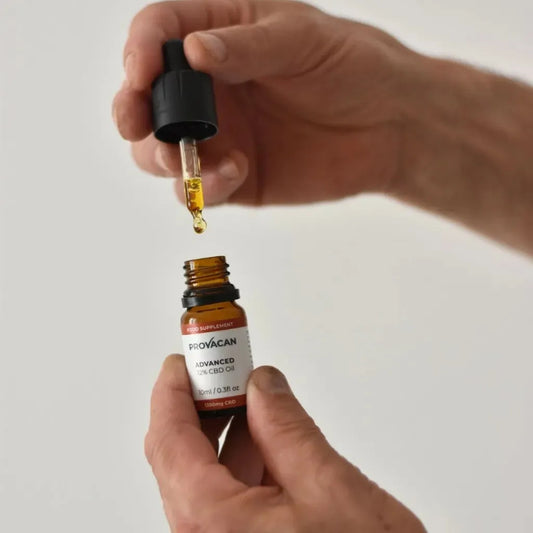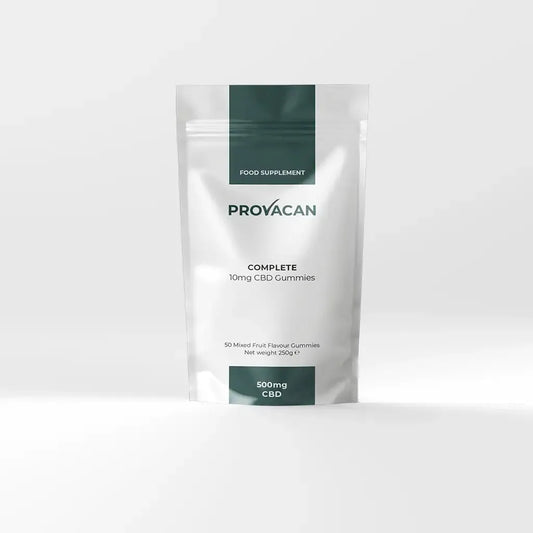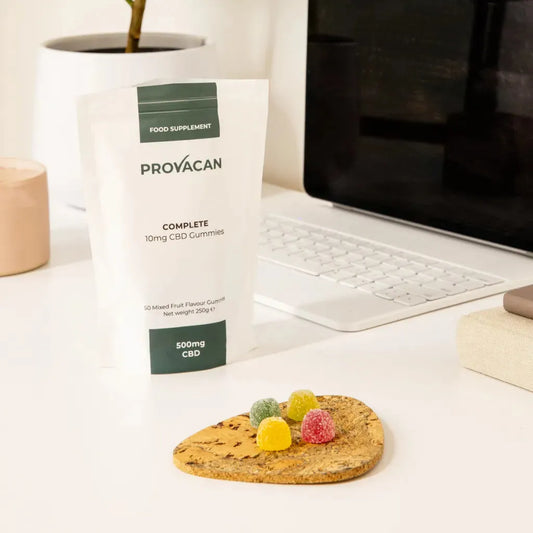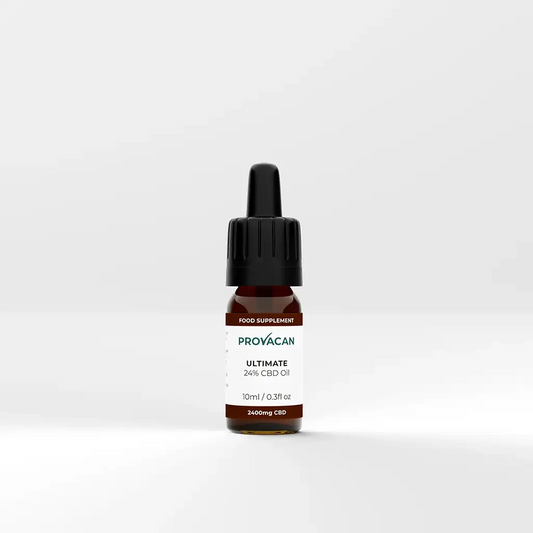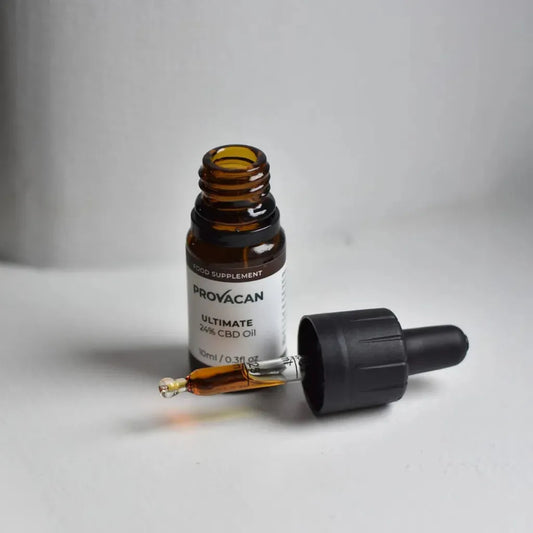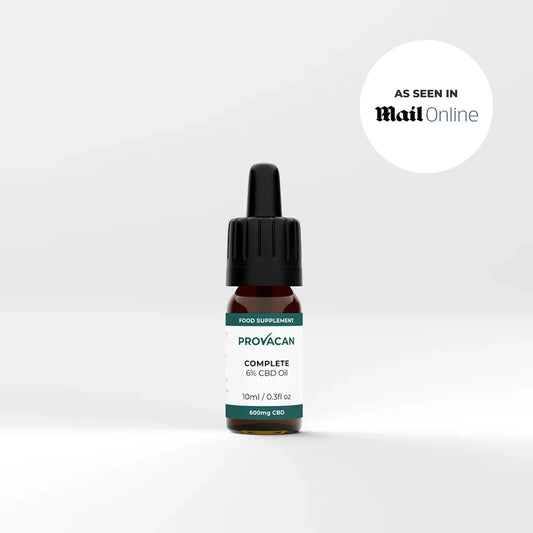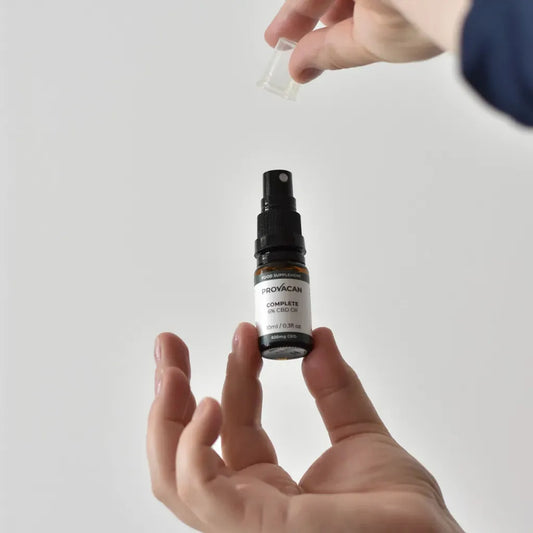Key Takeaways:
- CBD is Legal in the UK: CBD products are legal in the UK, but must meet strict guidelines.
- CBD May Not Contain More Than the Legal Limit of THC: In order to be legal, CBD products must contain less than 0.2% THC.
- CBD Products Must Be Classified as Food Supplements: In the UK, CBD products must be classified as food supplements, and must follow strict guidelines set by the Food Standards Agency (FSA).
In recent years, the popularity of CBD products has surged, with more and more individuals turning to cannabidiol for various wellness benefits. However, amidst this growing interest, questions about the legality of CBD have become increasingly prevalent. If you're in the UK and considering incorporating CBD into your wellness routine, it's essential to understand the regulatory landscape surrounding this compound.
At Provacan, we are at the forefront of CBD innovation, dedicated to providing our customers with the highest-quality products backed by scientific research. Our commitment to excellence and transparency ensures that your well-being remains our top priority. In this article, we will discuss the legal status of CBD in the UK, shedding light on the complexities of cannabidiol legalization.
By exploring key regulations, recent developments, and pertinent information, we aim to equip you with the knowledge needed to make informed decisions about CBD usage. Whether you're new to the world of cannabidiol or a seasoned consumer, understanding the legal framework surrounding CBD in the UK is crucial for navigating the market effectively. Let's unravel the intricacies of CBD legality together and empower you to prioritize your well-being with confidence.
The Historical Context Of Cannabis And CBD Law
To understand the current legal landscape of CBD in the UK, it is crucial to explore the historical context of cannabis and CBD law. Cannabis has a long and complex history, with various cultures using it for medicinal, recreational, and industrial purposes for thousands of years.
In the UK, the regulation of cannabis has seen significant changes over time. Cannabis was initially made illegal in 1928 under the Dangerous Drugs Act. This blanket prohibition included all forms of cannabis, regardless of their THC content. The perception of cannabis as a dangerous substance persisted for many decades, leading to stringent restrictions on its cultivation, possession, and use.
However, perceptions began to shift in more recent years, especially regarding CBD, a non-intoxicating compound found in cannabis. The UK government legalized CBD as a medicine in 2016, acknowledging its potential therapeutic benefits. This move opened the door for the legal sale and consumption of CBD products with specific criteria, such as containing less than 0.2% THC.
The 2018 Farm Bill in the United States also played a role in shaping CBD legislation worldwide. This legislation removed hemp, a variety of cannabis with low THC content, from the list of controlled substances. The UK followed suit by legalizing the cultivation of hemp and the production of CBD products derived from it.
Despite these positive strides, the legal status of CBD remains a complex issue, with regulations varying across countries and regions. In the UK, consumers must ensure they purchase CBD products from reputable sources that comply with the established guidelines to avoid any legal implications.
Understanding the historical evolution of cannabis and CBD law provides valuable insights into the current legal framework surrounding CBD in the UK. As societal attitudes and scientific research continue to shape cannabis regulations, staying informed is essential for both consumers and producers in the CBD industry.
CBD Legalisation In The UK
The legal status of cannabidiol (CBD) in the United Kingdom has sparked much discussion and confusion. In recent years, there have been significant changes in the legislation governing CBD products, leading to a clearer understanding of what is permissible in the UK.
In 2016, the Medicines and Healthcare Products Regulatory Agency (MHRA) acknowledged CBD as a medicine, paving the way for regulated and approved CBD products to be sold as medicinal products. This move provided consumers with assurance regarding the quality and safety of CBD products available in the market.
Additionally, in 2018, the UK government legalized medicinal cannabis for specific health conditions, further solidifying the acceptance of cannabinoids for therapeutic purposes. This decision marked a significant milestone in acknowledging the potential health benefits of CBD and other cannabis-derived compounds.
It's essential to note that CBD products in the UK must contain less than 0.2% tetrahydrocannabinol (THC), the psychoactive component of cannabis, to be considered legal. This restriction ensures that CBD products do not induce intoxicating effects and comply with UK regulations.
As a consumer, it's crucial to be informed about the legalities surrounding CBD products before making a purchase. Understanding the regulations in place can help you make educated decisions and ensure that you are buying high-quality, legal CBD products that adhere to safety standards.
Distinguishing Between Hemp And Marijuana
When it comes to the legality of CBD in the UK, understanding the key differences between hemp and marijuana is crucial. Both hemp and marijuana are varieties of the Cannabis sativa plant, but they have significant distinctions that impact their legality.
In the UK, hemp is legal to cultivate and use for various purposes, including extracting CBD. Hemp is defined as Cannabis sativa containing less than 0.2% THC, the psychoactive compound that produces a 'high.' This low THC content makes hemp-derived CBD products non-intoxicating and legal in the UK, as long as they adhere to certain regulations.
Marijuana, on the other hand, is classified as Cannabis sativa containing more than 0.2% THC. Due to its higher THC content, marijuana is considered a controlled substance in the UK and is illegal to cultivate or possess without a license. Products derived from marijuana, including CBD with higher THC levels, are not legal for general sale in the UK.
When shopping for CBD products in the UK, it is essential to check whether they are sourced from hemp or marijuana. Reputable CBD companies, like Provacan, provide transparent information about the source of their CBD to ensure compliance with UK laws and regulations. By choosing hemp-derived CBD products with less than 0.2% THC, consumers can enjoy the potential wellness benefits of CBD without running afoul of the law.
Understanding the distinction between hemp and marijuana is key to navigating the legal landscape of CBD in the UK. By making informed choices, consumers can confidently incorporate CBD into their wellness routines while staying compliant with regulations.
Regulations For CBD Products Under UK Law
In the United Kingdom, the legal status of CBD products is tightly regulated to ensure consumer safety and product quality. As of March 2021, CBD is legal in the UK as long as it meets certain requirements.
One of the key regulations for CBD products in the UK is that they must contain less than 0.2% THC (tetrahydrocannabinol), the psychoactive compound found in cannabis that produces a 'high'. This small amount of THC ensures that CBD products do not have intoxicating effects and are safe for consumers to use.
Additionally, CBD products in the UK are classified as food supplements, and companies selling CBD products must adhere to strict guidelines set by the Food Standards Agency (FSA). This includes providing evidence of the safety and quality of their products, as well as clear labeling that accurately reflects the contents of the product.
Furthermore, CBD products are prohibited from making any medical claims unless they have been licensed as a medicine by the Medicines and Healthcare Products Regulatory Agency (MHRA). This means that CBD companies cannot market their products as treatments for specific medical conditions without the appropriate approvals.
It is important for consumers to be aware of these regulations when purchasing CBD products in the UK to ensure that they are buying safe and legal products. By choosing reputable companies that adhere to the regulations set forth by UK law, consumers can feel confident in the quality and safety of the CBD products they are using.
THC Content Restrictions in CBD Products
When it comes to the legality of CBD products in the UK, one crucial factor to consider is the level of tetrahydrocannabinol (THC) present. THC is the psychoactive compound found in cannabis that is responsible for producing the "high" effect. In the UK, CBD products are legal as long as they contain less than 0.2% THC.
The 0.2% THC limit stems from guidelines set by the Home Office. Any CBD product exceeding this limit is considered illegal in the UK and may be subject to confiscation. It's important for consumers to be aware of this restriction when purchasing CBD products to ensure compliance with the law.
For manufacturers and sellers of CBD products, it is imperative to adhere to the THC content restrictions to ensure legality and consumer safety. Reliable and reputable companies like Provacan prioritize transparency in their products, providing clear information on THC content to guarantee compliance with UK regulations.
By abiding by THC content restrictions, manufacturers can maintain the legal status of their CBD products and build trust with consumers. Consumers, on the other hand, can have peace of mind knowing that the CBD products they purchase are safe, legal, and compliant with UK laws.
At Provacan, our products are meticulously tested to ensure they contain less than 0.2% THC, in line with UK regulations. We are committed to upholding the highest standards of quality and legality in all our CBD offerings to provide our customers with a trusted and reliable source of wellness products.
CBD Legalisation In The UK
The legality of CBD in the UK is a complex issue that has evolved over time. With the passing of the Misuse of Drugs Act in 1971, cannabis and all of its derivatives, including CBD, were classified as controlled substances. However, with the reclassification of CBD as a food supplement in 2016, its legal status has become more clear.
In the UK, CBD is legal as long as it contains less than 0.2% THC and is derived from EU-approved industrial hemp strains. This regulatory framework ensures that consumers can access high-quality and safe CBD products from reputable suppliers like Provacan.
As a leader in CBD innovation, Provacan is committed to providing consumers with products that meet the highest standards of quality and purity. By partnering with leading scientists and research bodies in the UK, Europe, and the US, Provacan ensures that its products are backed by the latest advancements in CBD research for dependable outcomes.
Whether you are new to the world of CBD or a seasoned consumer, it is essential to understand the legal landscape surrounding CBD in the UK. With Provacan's dedication to scientific excellence and customer care, you can trust that you are getting premium CBD products that are not only legal but also crafted to support your overall well-being. Choose Provacan for a CBD experience you can rely on, backed by a commitment to your health and satisfaction.
Read also:
Frequently Asked Questions on CBD Legalisation in the UK
Is CBD legal in the UK?
Yes, CBD (cannabidiol) is legal in the UK. However, it must meet specific regulatory standards. For a CBD product to be legally sold in the UK, it must contain less than 0.2% THC (the psychoactive compound found in cannabis). Furthermore, CBD products must be derived from an industrial hemp strain that is EU-approved.
Does CBD come from marijuana or hemp?
CBD can be extracted from both marijuana and hemp plants, which are both members of the Cannabis sativa species. However, in the UK, legal CBD is primarily derived from industrial hemp. Hemp is specifically cultivated to have high levels of CBD and low levels of THC, making it compliant with UK legal standards.
What are the THC limits for CBD products in the UK?
In the UK, the legal THC limit for CBD products is no more than 0.2%. This strict threshold is in place to ensure that CBD products cannot have psychoactive effects. Products that exceed this THC limit are classified as controlled substances under UK law.
Can I travel to the UK with CBD oil?
You can travel to the UK with CBD oil, provided it conforms to UK laws regarding CBD products. This means the CBD oil must contain less than 0.2% THC and be derived from an industrial hemp strain that is EU-approved. Always check the latest regulations and airline policies before traveling as these can change.
Are there age restrictions for buying CBD in the UK?
There is no specific legal age restriction for purchasing CBD products in the UK. However, most retailers enforce their own age limit, typically requiring customers to be 18 years or older to purchase CBD products. This policy varies by retailer, so it's always best to check in advance.
How should CBD products be labeled in the UK?
CBD products in the UK must adhere to accurate and clear labeling requirements. Labels should not make any unverified health claims. Essential information that must be included on labels includes the amount of CBD content, the THC content (not exceeding 0.2%), usage instructions, and full ingredient listings. Additionally, it must be clear that the product is a food supplement. Compliance with these labeling requirements ensures that products are safe, legal, and informative for consumers.
Sources:
- Freeman, T. P., Hindocha, C., Green, S. F., & Bloomfield, M. A. P. (2019). Medicinal use of cannabis based products and cannabinoids. BMJ, 365, l1141. https://doi.org/10.1136/bmj.l1141
- UK Government responds to expert advice on CBD. (n.d.). GOV.UK. https://www.gov.uk/government/news/uk-government-responds-to-expert-advice-on-cbd
- Busse, J. W., Vankrunkelsven, P., Zeng, L., Heen, A. F., Merglen, A., Campbell, F., Granan, L.-P., Aertgeerts, B., Buchbinder, R., Coen, M., Juurlink, D., Samer, C., Siemieniuk, R. A. C., Kumar, N., Cooper, L., Brown, J., Lytvyn, L., Zeraatkar, D., Wang, L., & Guyatt, G. H. (2021). Medical cannabis or cannabinoids for chronic pain: a clinical practice guideline. BMJ, 374, n2040. https://doi.org/10.1136/bmj.n2040




